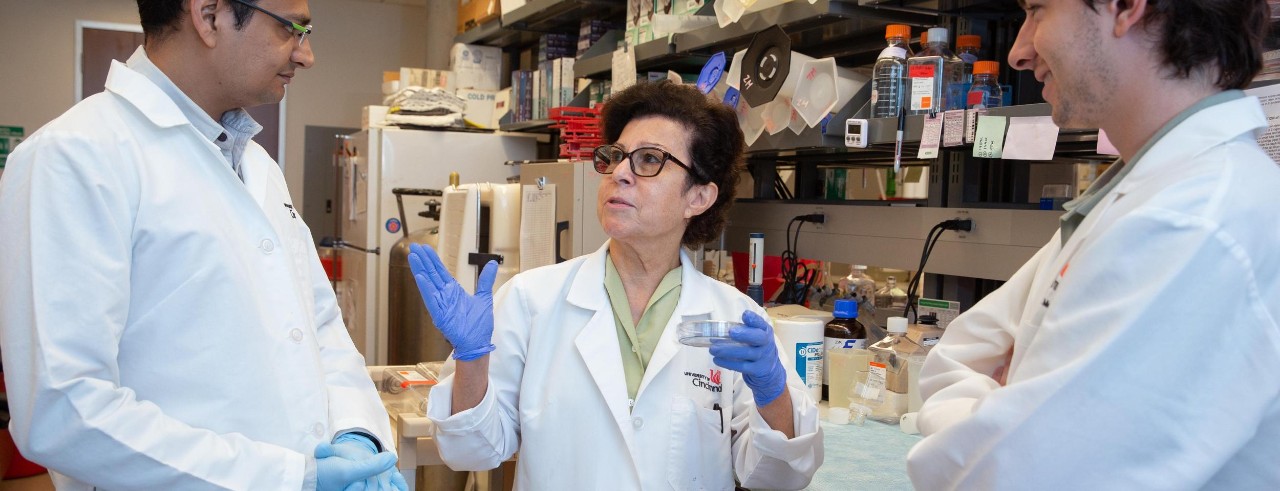
UC research aims to prevent skin cancer while getting a tan
WJXT highlights work of Venture Lab-backed startup
Research from the University of Cincinnati could allow people to get a healthy tan, avoid wrinkles and protect themselves from skin cancer, WJXT in Jacksonville, Florida, reported.
Zalfa A. Abdel-Malek, PhD, a professor of dermatology in the UC College of Medicine, is leading a team that's developing a topically applied cream that would start a sunless tanning process.
“What you’re doing with our peptides is you’re activating your skin’s natural ability to increase pigmentation,” Abdel-Malek said in a story that was distributed nationally by Ivanhoe Broadcast News. “So, when you go out in the sun, you’re not going to have the drastic and dangerous effects of sun exposure.”
Abdel-Malek's cream would work better than commercially available spray tans, she said. Current options color the skin but don’t activate the receptors that reduce DNA damage.
The cream could be commercially available in the next few years, Abdel-Malek said. With the help of the UC Venture Lab within the 1819 Innovation Hub, she’s created a startup, MC1R Ventures, to develop the product.
Featured image at top: Zalfa A. Abdel-Malek, center, is developing a topically applied product to initiate sunless tanning, which could have medical and cosmetic applications. Photo/Andrew Higley/UC Marketing + Brand
About UC Venture Lab
A leading model for urban-centered universities, the UC Venture Lab activates a high density of rapidly curated startup opportunities that attract outside entrepreneurial talent and investors. We connect university students, faculty, staff, and alumni to talent and funding to help launch new companies. Our team includes Office of Innovation staff as well as Entrepreneurs-in-Residence (EIRs), coaches, curated service providers, and subject matter experts.
Related Stories
UC research aims to prevent skin cancer while getting a tan
April 6, 2023
Research from the University of Cincinnati could allow people to get a healthy tan, avoid wrinkles and protect themselves from skin cancer, WJXT in Jacksonville, Florida, reported.
Local 12: UC startup gains approval for trials
May 30, 2023
A startup founded by four University of Cincinnati physicians gained FDA approval to move forward with clinical trials for its portable system that can detect brain injuries, Local 12 reported.
WCPO: UC-backed startup aims to use AI to detect heart disease
March 4, 2024
A University of Cincinnati-backed startup is developing explainable artificial intelligence to better diagnose coronary artery disease risk in women, WCPO reported.
